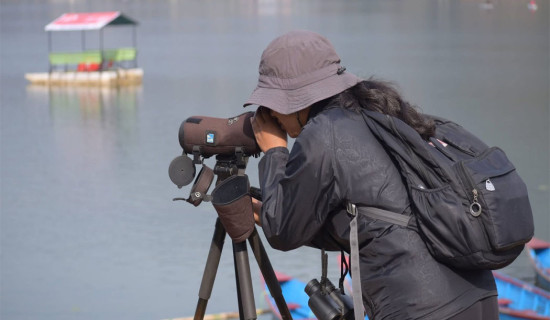- Wednesday, 14 January 2026
An Analysis Of Democracy
Democracy is not a prerogative of any one country, region, or population. Rather, it is an ideal based on the common values of justice, inclusion, equality, and freedom. Democracy is not perfect; it is a work-in-progress that requires diligent effort from all sectors of society to be successful.
Its beauty is its imperfection and the fact that it needs tweaks and amendments should speak to its malleability and not be touted as a defect. And most importantly, there is no single correct model of democracy. As the government of the people, by the people and for the people, it is the people and their communities that choose how democracy manifests in a nation.
Democracy is shaped by the social, economic, and cultural contexts of the citizens that participate in it and hence, is different for everybody. No one can and should claim their democratic systems as stronger or better than anyone else’s.
These are some of the strongest points expressed in the volume ‘Rooting Nepal’s Democratic Spirit’ published this year by the Nepal office of Friedrich-Ebert-Stiftung (FES). Rather deceivingly published in the form of a hardcover, this time should not be considered a single book but rather different books bound together because every one of the 15 articles this publication contains is a short handbook in its own right.
They are incredibly deep and shed light on Nepal’s democratic practices with a special focus on the 2015 constitution, political parties, interest groups, inclusion, representation, media, external support, and digitization.
Containing chapters authored by political scientist Chandra Dev Bhatta, Coordinator of Tribhuvan University’s Department of Conflict, Peace and Development Studies Pitambar Bhandari, constitutional expert and former government secretary Kashi Raj Dahal, political analyst Krishna Hachhethu, Associate Professor at Kathmandu University Uddhab Pyakurel, Assistant Director of Social Science Baha Jeevan Baniya, social science researcher Amit Gautam, sociologist Meena Poudel, activist Santosh Pariyar, economist Hari Bansh Jha, Deputy Executive Editor of The Rising Nepal Ritu Raj Subedi, Associate Professor at the Mid-West University Arjun Bahadur Ayadi, practitioner of non-violent communication Rajib Timalsina and advocate and internet rights activist Roshan Pokharel with development practitioner Prashamsha Simkhada, legal officer Adwait Baral and law student Rojina Shrestha presenting the young perspectives on democracy, it would be accurate to approach this FES publication, edited by Bhatta, as a book of books.
But a common thread that runs through all these ‘books’ is the emphasis placed on democrats. Democracy needs democrats, they stress; entities that firmly believe in the power of the people and that are committed to upholding the principles of transparency, accountability, and the greatest good for the greatest number.
This, most immediately and importantly, applies to politicians and political parties because they are, after all, the ones running the country and wielding power on behalf of the citizens. But this also applies to those branded as experts and intellectuals, academia, private and public businesses, the non-government sector, foreign donors and supporters, and the media.
Everyone has a role to play to strengthen democracy and maintain a check and balance on the other. Each one of us is responsible for carrying out our duties and for ensuring that our peers and counterparts do not extend their reach through illegitimate means.
Naturally, as the one dubbed the “watchdog” of power, media and journalists have a greater obligation to democracy than others. They are the eyes and ears of the people and get the special privilege to question the state and those running it.
They have the freedom to seek and disseminate the truth and make sure that the mechanisms built on the generosity exhibited by the people in the form of their tax payments use that money to benefit the people and not serve the interests of some faceless nameless unit.
The articles contained in this book are scholarly works and may prove hard to read for some. They do not contain much jargon but, as is inherent in research works, they lay out facts in a rather straightforward manner. Studies and analyses definitely cannot take the same liberties as fiction but they can be packaged attractively and be made relatable to the masses.
Having said that though, we must acknowledge that this book is not aimed at the masses and is a product for researchers and investigators looking to study Nepal’s democracy and build upon the perspectives presented here by the authors.
As a reference book for readers with a pre-existing level of knowledge and interest in Nepal’s democratic process, this book is sufficient.
Many of the topics raised in this book, or at this point it might be more appropriate to call it a journal, bear looking into in more detail, and perhaps, FES might need to think about publishing follow-up books or volumes.














